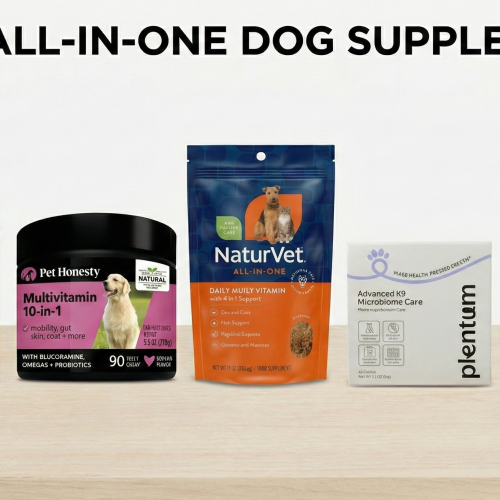Daily probiotic supplementation is generally more effective than weekly dosing for supporting a dog’s digestive health and overall well-being, according to veterinary experts and recent research. A consistent daily routine helps beneficial bacteria establish and maintain a healthy gut microbiome, but individual needs—like age, health, and lifestyle—should guide the optimal regimen.
Introduction
Probiotics are live, beneficial microorganisms that help maintain a healthy balance of gut bacteria in dogs, supporting digestion, immunity, and general health. A common question among dog owners is whether giving probiotics daily or weekly is best for their pet’s needs.
What Are Probiotics?
Probiotics are “good” bacteria that naturally exist in a dog’s digestive system and can be supplemented to support gut balance. They work to outcompete harmful bacteria, support nutrient absorption, aid digestion, and bolster immune function, since about 70% of a dog’s immune system is in the gastrointestinal tract.
Daily Probiotic Regimen
Pros
- Consistency helps maintain stable gut flora and strengthens digestion and immunity.
- Dogs with chronic conditions, recent antibiotic use, or stressful situations (like travel) benefit most from daily use.
- Research shows daily supplementation leads to quicker and more substantial improvements in stool quality, immune markers, and allergy reduction.
Cons
- May be unnecessary (and costly) for healthy dogs without ongoing digestive or immune challenges.
- Starting daily may cause minor digestive changes, so beginning with a lower dose is sometimes recommended.
Weekly Probiotic Regimen
Pros
- Suitable for dogs with stable gut health or as a prevention during periodic stress or dietary transitions.
- Lower cost and easier compliance for owners with busy routines.
Cons
- Less evidence supports weekly use for correcting or maintaining gut imbalances.
- May not provide lasting benefits, since probiotic colonies diminish quickly without reinforcement, especially during or after illness or antibiotics.
Comparing Daily vs Weekly Approaches
Daily Probiotics:
- Effectiveness: Strong gut support and faster results.
- Convenience: Requires daily commitment.
- Use Cases: Digestive issues, immune support, after antibiotics.
Weekly/As Needed Probiotics:
- Effectiveness: Mild preventive support.
- Convenience: Easy to remember.
- Use Cases: Healthy dogs, travel, diet change.
Daily regimens are superior for most health needs, while weekly use suits dogs with no ongoing digestive or immune issues.
Veterinary Recommendations and Studies
Veterinary experts advocate daily probiotic use, especially following antibiotics, during stress, or in dogs with digestive disorders. Cornell University and several recent studies endorse routine daily supplementation in the 1–10 billion CFUs/day range, depending on the dog’s size and health. However, the safest course is to consult a veterinarian for product and dosing advice and to monitor for changes.
Tailoring the Routine to Your Dog’s Needs
- Age: Puppies and seniors may need more consistent probiotic support.
- Health: Dogs with digestive upsets, food allergies, or chronic illness benefit from daily dosing.
- Diet: Fresh, gut-friendly foods with probiotics may reduce the need for supplements, but not entirely replace them, especially during health challenges.
Individual factors—such as medical history, diet, and current medications—should guide any changes to a supplement routine, and veterinary oversight is recommended.
Conclusion
Daily probiotic supplementation is most effective for maintaining optimal canine gut health and addressing digestive or immune imbalances, while weekly use may suit healthy, stable dogs or short-term preventive needs.
Summary of Recommendations
- Daily probiotics are ideal for digestive issues, immune support, and during stress or medical treatment.
- Weekly or occasional use can be considered for healthy dogs who rarely experience digestive upsets or for seasonal preventive support.
- Always select products formulated for dogs, and consult a veterinarian before starting or changing a dog’s supplement routine.
By considering each dog’s unique needs and following veterinary advice, owners can confidently choose the best probiotic routine for lifelong canine wellness.







